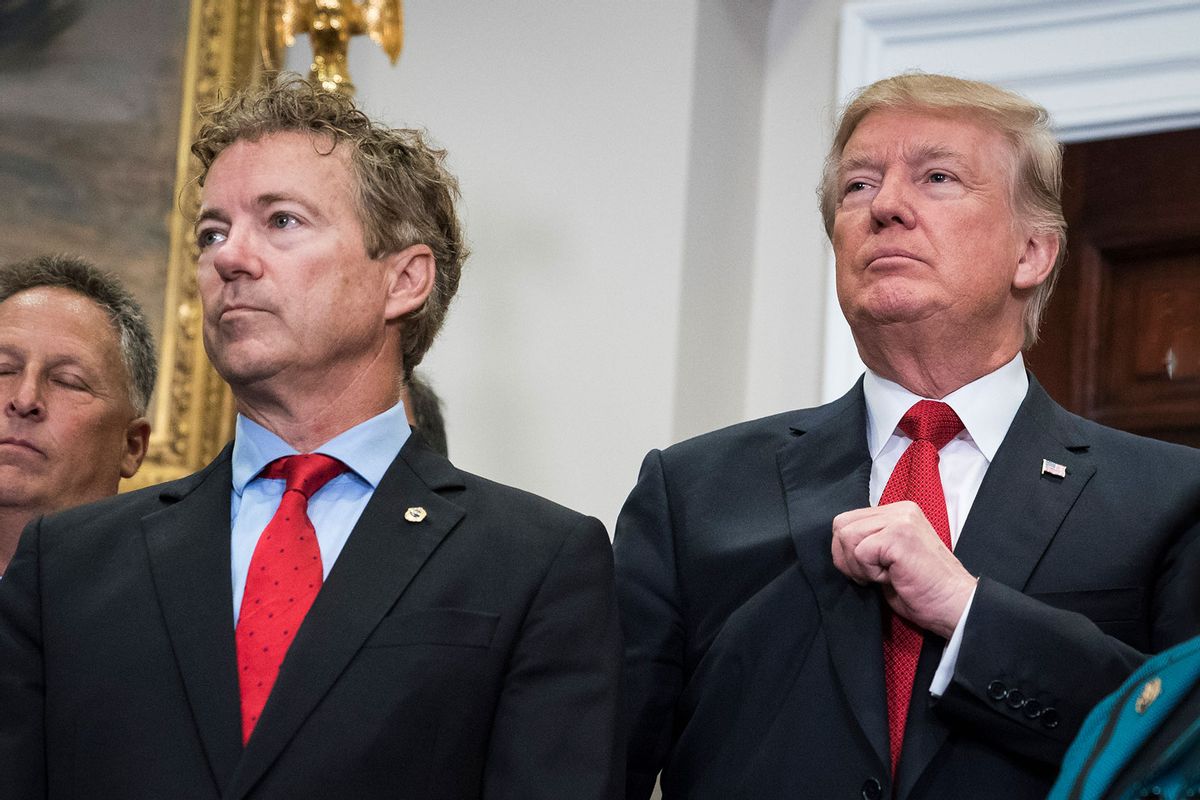On Tuesday, a liberal judge cleaned out her conservative rival in a pivotal court race in Wisconsin, while GOP House candidates in two Florida districts underperformed Donald Trump's 2024 result by more than 15 points, sending jolts of panic through a Republican Party wary of what those portend for the 2026 midterms. And that's before the president announced "reciprocal" tariffs Wednesday that some Republican lawmakers fear will wreak havoc on both the economy and their standing among voters.
Sen. Thom Tillis, R-N.C., was a beneficiary of both the 2010 and 2014 midterm backlash against former President Barack Obama, which carried him to the speakership of the North Carolina House of Representatives and then to the Senate, respectively. On Wednesday, he warned in an interview with Politico that Republicans risk inviting the same fate in 2026, when he is up for re-election.
“What we don’t want to do is overreach,” Tillis said. “We’ve got to be careful not to do the same thing. And I think that these elections are going to be proxies, or almost like weather devices for figuring out what kind of storm we’re going to be up against next year.”
Some of his colleagues see precedent even further back in time, worrying that voters, already restive over Trump's cuts to vital government services, will blame the GOP for any fallout from the tariffs and inflict on the party the kind of electoral devastation not seen since the Great Depression.
"When [President William McKinley], most famously, put tariffs on in 1890, they lost 50% of their seats in the next election,” Sen. Rand Paul, R-Ky., told reporters. “When Smoot and Hawley put on their tariff in the early 1930s, we lost the House and the Senate for 60 years. So they’re not only bad economically, they’re bad politically.”
Paul also criticized the tariffs in an interview with The Hill, arguing that tariffs will hurt Americans more than U.S. competitors. "Tariffs are a tax, and if you tax trade or if you tax anything, you’ll get less of it," he said.
Trump, it seems, is not open to criticism, calling Paul and three other GOP senators "disloyal" for voting to roll back his tariffs against Canada, a longstanding trade and strategic partner. He has claimed that the policy is merely a response to heavy tariffs that other countries already impose on American goods, but fact-checkers have pointed out those so-called tariffs by other countries are actually just the Trump administration dividing the country's trade deficit by its U.S.-bound exports in half.
In response to the special elections on Tuesday, the White House is attempting to project confidence. “President Trump is the only Republican in nearly 40 years to destroy the Democrats’ blue wall, and it’s embarrassing to see them spike the football after their massive defeat in November,” said White House spokesperson Harrison Fields.
Americans might not be as confident in Trump's policies, however. Just four in 10 voters view his handling the economy and trade favorably, according to an AP-NORC poll conducted in late March.



Shares